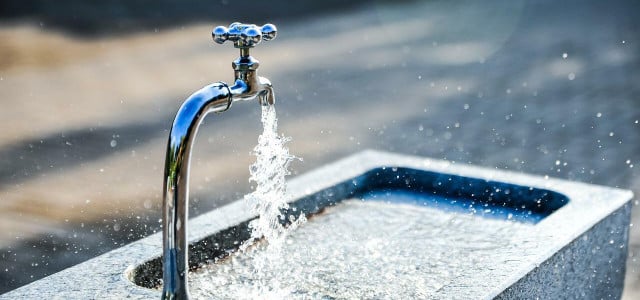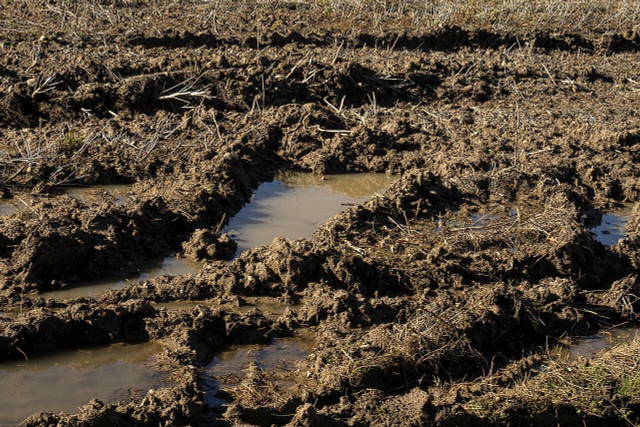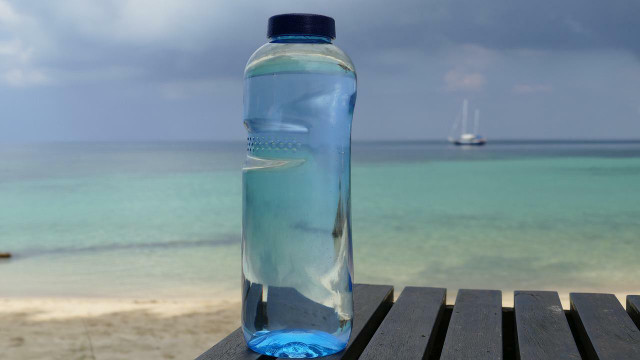
Chlorine in drinking water is rather rare in Germany. When you travel, however, you may encounter chlorinated water more often. You can find out here what you should consider when consuming this water.
You probably associate the typical smell of chlorine with a visit to the swimming pool. There chlorine is used as a cheap one disinfectant and fights contamination and related germs. Chlorine in drinking water performs a similar function. The chemical element is said to rid the water of bacteria and pathogens, making it drinkable.
In Germany there are strict limit values for the use of chlorine in drinking water. Water suppliers only use more chlorine in exceptional situations. In other countries, for example in Australia, England or the USA, heavily chlorinated drinking water is the norm. But even there, there are limit values that guarantee that human health is not endangered.
Chlorine in drinking water: That’s why it’s used
Chlorine is a chemical element that has a strong odor of its own, is gaseous and readily soluble in water. In large quantities it is highly toxic to the human organism. Used in moderation, however, it kills pathogens that can also harm humans.
In order to be able to assess the health quality of drinking water, waterworks use the content of the so-called EHEC bacteria (Enterohaemorrhagic Escherichia coli), certain strains of the intestinal bacterium E. coli. These are pathogens that are mild to severe Gastrointestinal Diseases can trigger. Some E. coli strains do not cause any symptoms at all. In the case of an infection, it can nauseavomiting and Diarrhea come. In the worst case, this can end in severe intestinal inflammation, anemia and kidney failure and thus become life-threatening.
To ensure the cleanliness of our drinking water, the Drinking Water Ordinance applies in Germany. According to this, E. coli bacteria must not occur once in 100 milliliters of drinking water. Therefore, some waterworks use chlorine to kill the pathogens. But there are clear guidelines for this too: According to the Süddeutsche Zeitung (SZ), the limit value for chlorine in drinking water in Germany is 0.3 milligrams per liter of water.
In other countries, these limit values are set significantly higher. In Australia, for example, they are five milligrams per liter. England and the USA also use chlorine in drinking water much more extensively than is the case in Germany. According to the SZ, about half of all German waterworks no longer routinely use chlorine in drinking water treatment. They use deep groundwater. This has already been filtered through various layers of soil. The pathogens get stuck there. If the water is then under sandy or loose soil, it is also well protected from new germs. Ozone or UV rays are also sometimes used as disinfection methods. However, the ozone must be removed again before the water gets into the pipes.
More chlorine in drinking water: Also in Germany

(Photo: CC0 / Pixabay / WolfBlur)
In Germany, higher chlorine levels in drinking water only occur in exceptional cases. This is especially true after heavy rainfall. Because then the water masses soften the ground. The water can no longer seep in and be filtered by the bottom, but floats on the surface. This surface water can be heavily contaminated and therefore cannot flow into our pipes as drinking water without additives.
If there are no warnings from the local health authorities in such cases, you can drink the more chlorinated water without hesitation. If, on the other hand, the chlorine concentrations are very high, authorities recommend boiling tap water before use. Then the chlorine in the drinking water evaporates.
Drinking water when travelling: you should pay attention to this

(Photo: CC0 / Pixabay / dolvita108)
The US Centers for Disease Control and Prevention analyze the quality of tap water worldwide and provide information on the countries in which you can drink tap water without hesitation. According to the results, you can also do this in countries that have higher limits for chlorine in drinking water, such as the US or Australia.
For people who are usually used to chlorine-free or low-chlorine tap water from Germany, the taste and smell can only be disturbing. Most people smell the pungent odor of chlorine from a concentration of 0.6 milligrams per liter.
However, the Süddeutsche Zeitung reports on studies that indicate that high levels of chlorine in drinking water may slightly increase the risk of cancer. However, this connection has not yet been scientifically clarified.
Pregnant and breastfeeding women, babies and small children should generally avoid more chlorinated water as much as possible. For example, high levels of chlorine in children in the womb and in the first few years of life can trigger chronic diseases and affect the development of the brain or the immune system.
Chlorine in drinking water: How to get rid of it
If you live abroad for a long time and would like to enjoy chlorine-free drinking water, you can buy a special filter system for this. These usually filter with the help of activated charcoal the chemical element from water. For short-term stays, it is worth buying a drinking bottle that contains a water filter that reduces the chlorine content. Both are cheaper and more sustainable in the long term than constantly water in plastic bottles to buy.
In Germany, on the other hand, water filters are often superfluous and even harmful to health if used incorrectly. You can find out more about this at Filtering water: How useful are water filters from Brita & Co.?
Note: If you are in a country where the tap water is typically contaminated, you should find out in advance whether and with which filters or methods you can treat the water for consumption. Otherwise you risk serious illnesses.
Read more on Techzle.com:
- Drink water: this much is healthy
- 7 Waters That Hurt Common Sense
- Sparkling water: is carbonated water unhealthy?